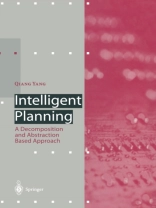"The central fact is that we are planning agents." (M. Bratman, Intentions, Plans, and Practical Reasoning, 1987, p. 2) Recent arguments to the contrary notwithstanding, it seems to be the case that people-the best exemplars of general intelligence that we have to date- do a lot of planning. It is therefore not surprising that modeling the planning process has always been a central part of the Artificial Intelligence enterprise. Reasonable behavior in complex environments requires the ability to consider what actions one should take, in order to achieve (some of) what one wants- and that, in a nutshell, is what AI planning systems attempt to do. Indeed, the basic description of a plan generation algorithm has remained constant for nearly three decades: given a desciption of an initial state I, a goal state G, and a set of action types, find a sequence S of instantiated actions such that when S is executed instate I, G is guaranteed as a result. Working out the details of this class of algorithms, and making the elabora- tions necessary for them to be effective in real environments, have proven to be bigger tasks than one might have imagined.
Qiang Yang
Intelligent Planning [PDF ebook]
A Decomposition and Abstraction Based Approach
Intelligent Planning [PDF ebook]
A Decomposition and Abstraction Based Approach
قم بشراء هذا الكتاب الإلكتروني واحصل على كتاب آخر مجانًا!
لغة الإنجليزية ● شكل PDF ● ISBN 9783642606182 ● الناشر Springer Berlin Heidelberg ● نشرت 2012 ● للتحميل 3 مرات ● دقة EUR ● هوية شخصية 6328762 ● حماية النسخ Adobe DRM
يتطلب قارئ الكتاب الاليكتروني قادرة DRM












